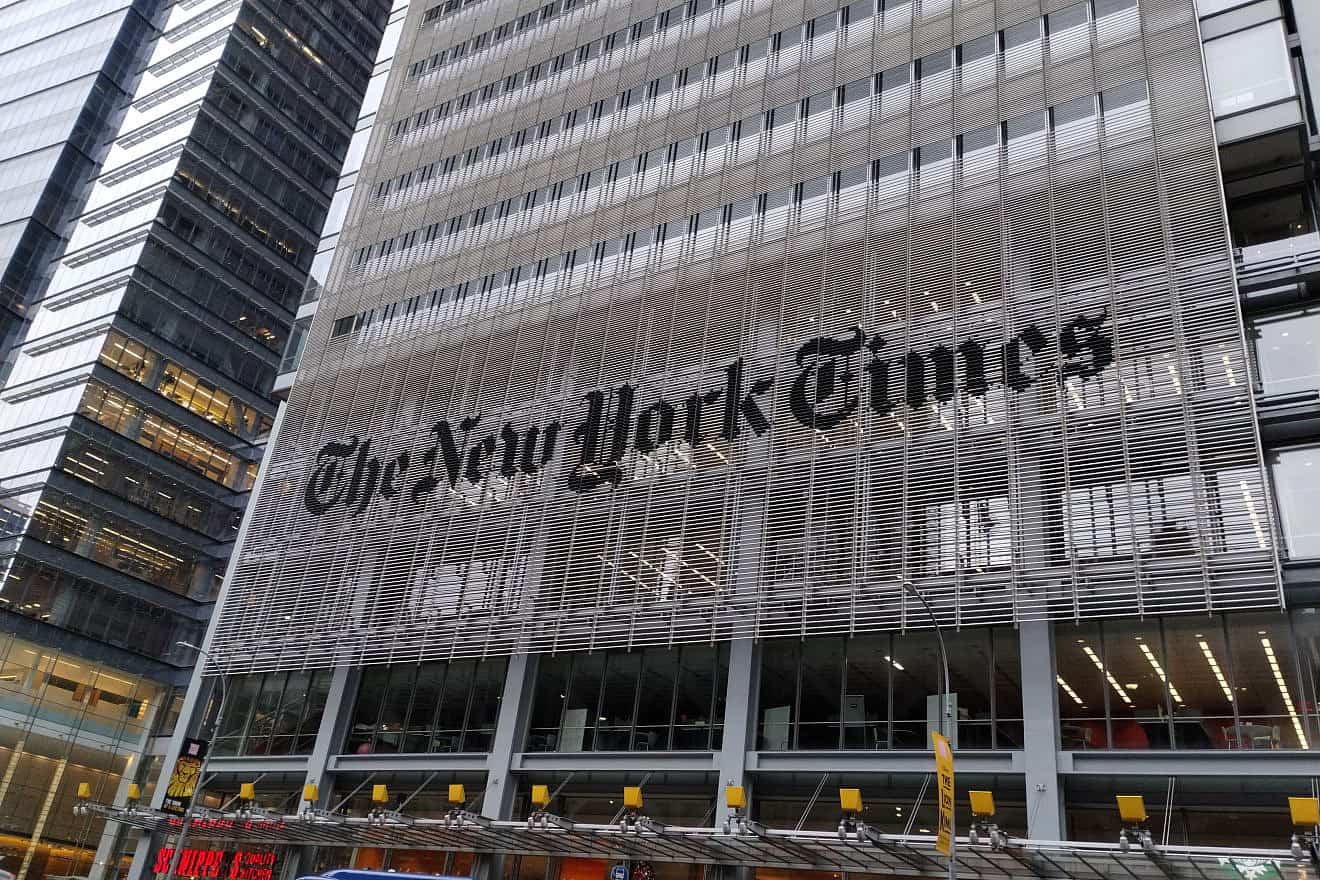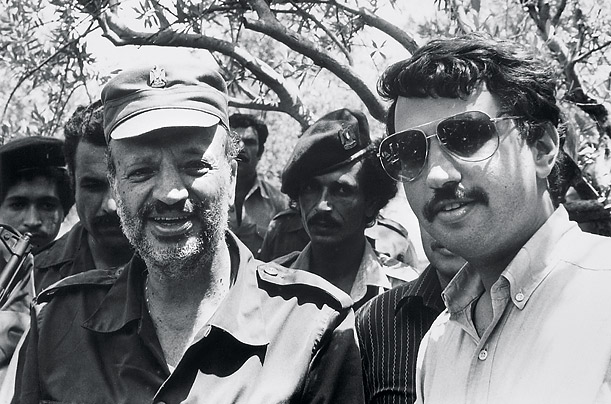‘The New York Times’ and Israel
Unrelenting denigration of Zionism and Judaism, stretching across nearly a century, is too deeply embedded to change any time soon, if ever.
By Jerold S. Auerbach
JNS
Jan 26, 2024
Thomas Friedman (right) stands with Palestinian terrorist Yasser Arafat in Lebanon, circa 1984
Nothing engages New York Times columnist Thomas L. Friedman more than the unrelenting laceration of Israel. He has blamed “feckless” American Jewish leaders for supporting “a colonial Israeli occupation” while equating Jewish settlers with Palestinian suicide bombers. He advised readers to “never forget just how crazy some of Israel’s Jewish settlers are.” They assassinated Prime Minister Yitzhak Rabin when he tried to cede part of the West Bank for peace with the Palestinians. (Rabin’s assassin, who lived in the Israeli city of Herzliya, was not a settler.) Friedman dismissed devastating Palestinian terrorist attacks as merely “a continual poke in the ribs” to Israeli civilians.
Unless Israel returned to its vulnerable pre-1967 boundaries, Friedman imagined, “it will be stuck with an apartheid-like, democracy-sapping, permanent occupation.” Settlements were “insane” and a “cancer for the Jewish people.” He identified the violent Palestinian intifada with the American struggle for civil rights while insisting that his repetitive recitation of Israel’s failings helps the Jewish state preserve its moral integrity. He claimed that Palestinian violence was justified as “spontaneous acts of a people being occupied by another people.”
Bracketing Jewish settlers with Palestinian suicide bombers, Friedman has insisted that there is “no hope for peace without a Palestinian state in Gaza and the West Bank,” effectively sandwiching Israel between its hostile neighbors and leaving it dangerously vulnerable. But if Israel retains these territories (biblical Judea and Samaria) it “would become either an undemocratic apartheid state … or a non-Jewish state.” The solution, he imagines, is to dismantle settlements, thereby depriving Israel of its biblical homeland, which he identifies as Palestinian land. Otherwise, “it could no longer be a Jewish democracy.”
Friedman has hardly been the only Times critic of Zionism and Israel. Two decades before there was a Jewish state, there was a Jewish reporter—Joseph W. Levy—whose hostility to Zionism was evident in his coverage of Palestine. He ignored murderous Arab attacks against Jews, blamed Zionists for Arab violence and guided critics of Zionism into the Times. Jewish publisher Adolph Ochs was determined that the Times not be identified as a “Jewish” newspaper.
For his son-in-law and successor, Arthur Hays Sulzberger, who launched the enduring family dynasty, Zionism raised doubts about the loyalty of American Jews. Editors were told not to refer to “the Jewish people” but to “people of the Jewish faith.” Reporters whose first name was Abraham received bylines with their initials only, the better to conceal their Jewish identity. Sulzberger worried about having a “Jewish specialist” posted in Jerusalem and preferred to “never put a Jew in the ‘showcase’ lest the Times be devalued in ‘gentile circles.’”

Times Jewish Jerusalem bureau chiefs, columnists and reporters have been unrelenting critics of Israel. Among them, Roger Cohen, citing Israel’s ”corrosive business of occupation,” recommended more American “hammering” on Israel for its “undemocratic system of oppression” and “messianic nationalism.” Serge Schmemann recommended that Israel “stop the killing, give the Palestinians a state.” Anthony Lewis, who identified himself as a “friend“ of Israel, became its constant critic, blaming it for being dominated by “religious-nationalist fervor” and identifying it with South African apartheid. Visiting the site of a Palestinian terrorist attack, Jodi Rudoren preposterously claimed that Israel was building “3,500 more settlements.” Noting that 11 Israelis had been killed by Palestinians within a month, Rudoren and Isabel Kershner blamed “extremists on both sides.” At the site of a recent terrorist attack, bureau chief Deborah Sontag emphasized that Israelis and Palestinians alike had “vehemently accused the other of intransigence.” Ethan Bronner saw no alternative to embracing competing Palestinian and Israeli narratives over whose land was the Land of Israel.
Unrelenting New York Times denigration of Zionism and Israel, stretching across nearly a century, is too deeply embedded to change any time soon, if ever. For now, Friedman decides what is fit to print about the Jewish state—as long as it is critical. Surely, Joseph Levy would be pleased.

No comments:
Post a Comment